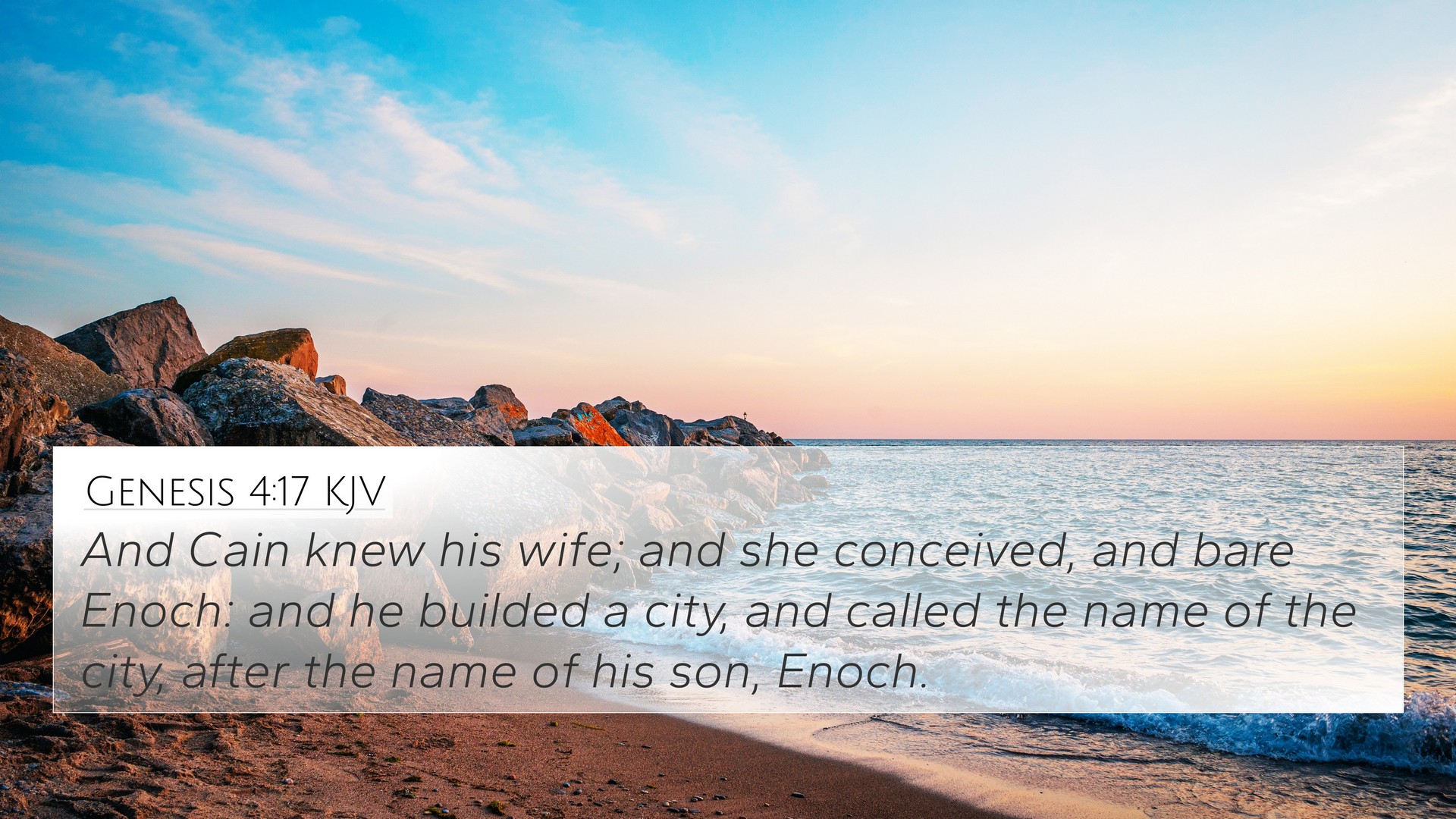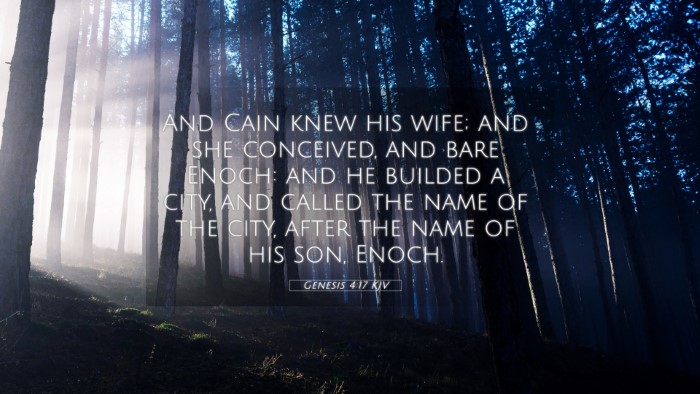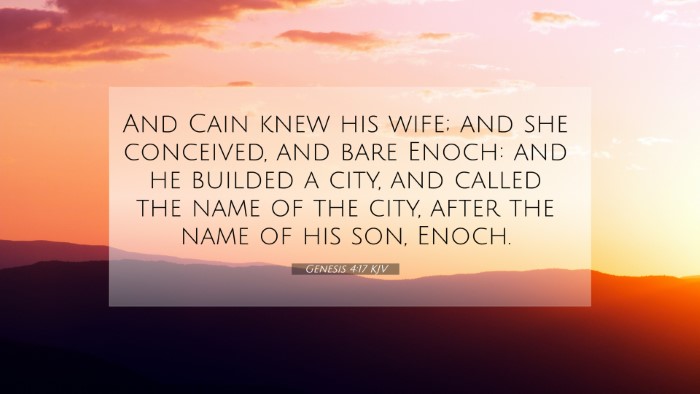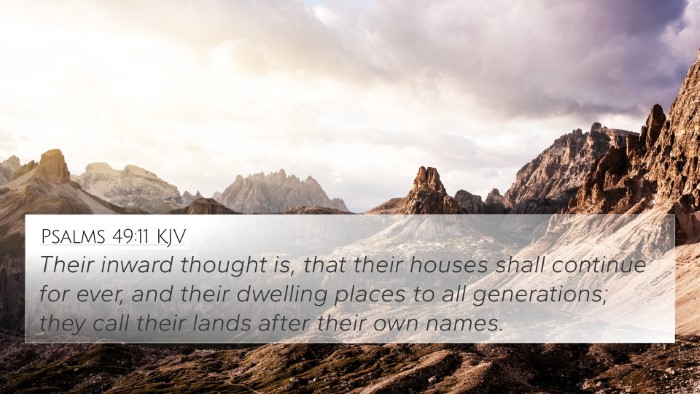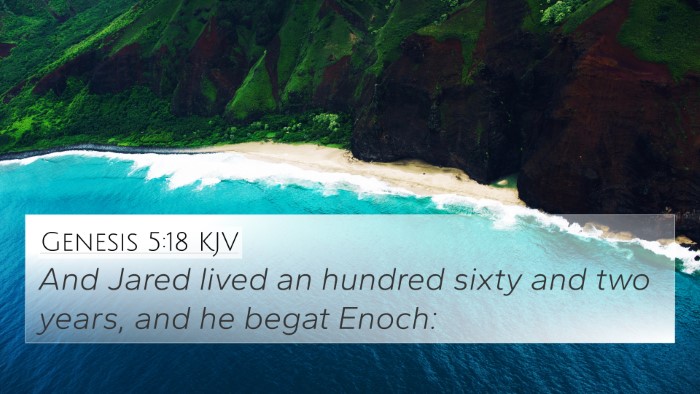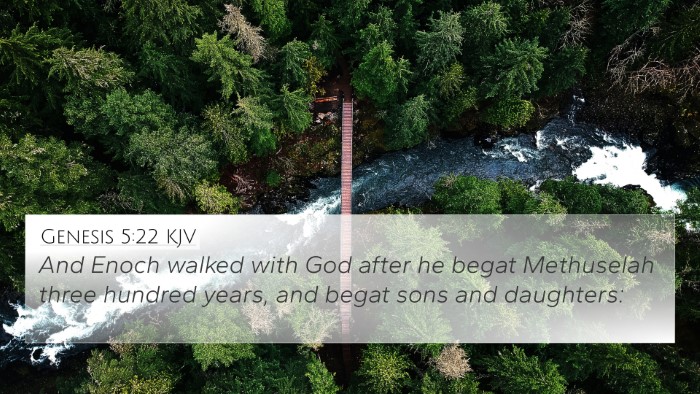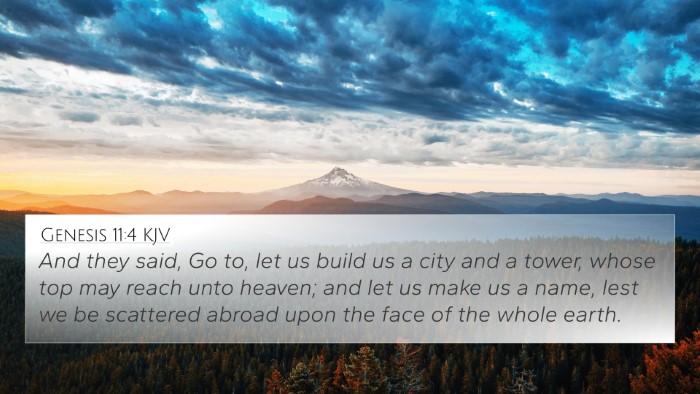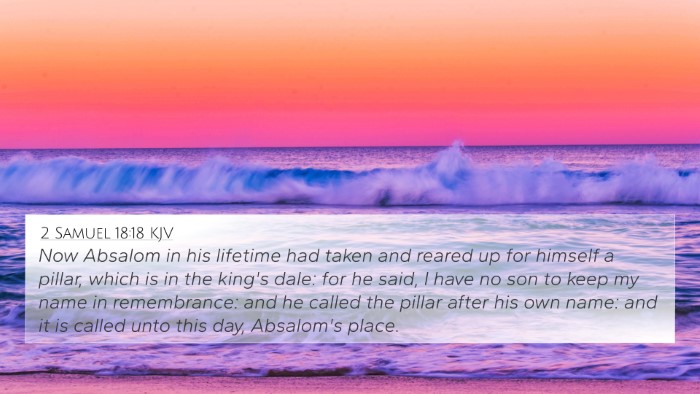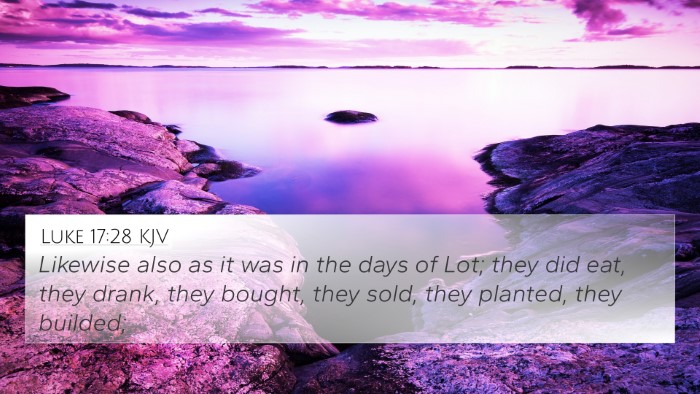Understanding Genesis 4:17
Genesis 4:17: "And Cain knew his wife, and she conceived, and bare Enoch: and he builded a city, and called the name of the city, after the name of his son, Enoch."
This verse reveals significant aspects of Cain's life post-murder, including his familial relationships and societal contributions. To better understand this verse, let us explore insights from noted public domain commentaries.
Commentary Insights
-
Matthew Henry:
Henry emphasizes the shift in Cain’s role from a wanderer to a builder, suggesting that Cain sought to establish a legacy through his son, Enoch. This act demonstrates a desire for permanence despite his punishment, which reflects the human tendency to push against divine judgment.
-
Albert Barnes:
Barnes notes the significance of Cain marrying and procreating, indicating that humanity continued despite the curse. The establishment of a city denotes a move towards civilization, which raises questions about moral implications and societal order after sin entered the world.
-
Adam Clarke:
Clarke provides insight into the city Cain built, explaining that naming it after Enoch (his son) signifies the beginning of a society that, according to later biblical texts, shows a moral decline. Thus, this act serves as a prelude to the development of cultures often estranged from God.
Thematic Connections
This verse is pivotal in tracing the development of humanity post-fall, demonstrating how even those who initially distanced themselves from God engaged in foundational societal practices. This reflects a theme of God's ongoing relationship with humanity despite sin.
Bible Verse Cross-References
To enrich the understanding of Genesis 4:17, we can explore related Bible verses that reveal deeper insights into Cain's actions and their implications:
- Genesis 4:10: "And he said, What hast thou done? the voice of thy brother's blood crieth unto me from the ground."
- Genesis 4:12: "When thou tillest the ground, it shall not henceforth yield unto thee her strength; a fugitive and a vagabond shalt thou be in the earth."
- Genesis 4:25: "And Adam knew his wife again; and she bare a son, and called his name Seth: For God, said she, hath appointed me another seed instead of Abel; whom Cain slew."
- Genesis 5:1-3: "This is the book of the generations of Adam. In the day that God created man, in the likeness of God made he him; Male and female created he them; and blessed them, and called their name Adam, in the day when they were created."
- Hebrews 11:4: "By faith Abel offered unto God a more excellent sacrifice than Cain, by which he obtained witness that he was righteous, God testifying of his gifts: and by it he being dead yet speaketh."
- 1 John 3:12: "Not as Cain, who was of that wicked one, and slew his brother. And wherefore slew he him? Because his own works were evil, and his brother's righteous."
- Jude 1:11: "Woe unto them! for they have gone in the way of Cain, and ran greedily after the error of Balaam for reward, and perished in the gainsaying of Core."
Analysis and Interpretative Commentary
Through the analysis of Genesis 4:17 and its cross-references, we can observe the following:
- Human Initiative vs. Divine Will:
The establishment of a city by Cain showcases human ambition, but it also serves as a contrast to the divine consequences he faced for his actions.
- Legacy and Its Implications:
Cain’s choice to name the city after his son reflects his desire to create a lasting legacy, which leads to a deeper understanding of how Cain's lineage further develops.
- Symbolism of the City:
The city represents the complexities and dualities of societal progress intertwined with moral failures.
Conclusion
Genesis 4:17 invites us to contemplate the dynamic between sin and human development and allows us to see the consequences of Cain’s actions ripple through the subsequent generations. It encapsulates themes relevant to our understanding of humanity's flawed but persistent journey towards civilization. The connections provided through cross-references further enrich our study and reveal the broader narrative threads within the Bible.
